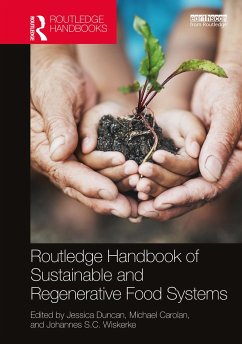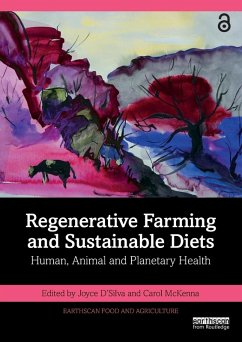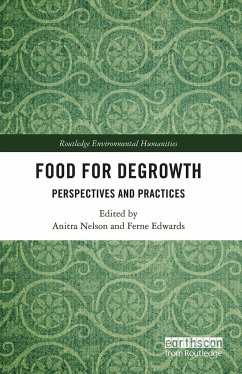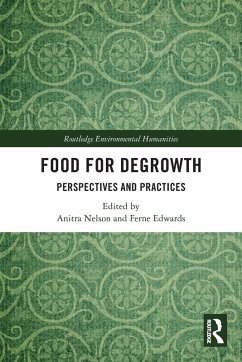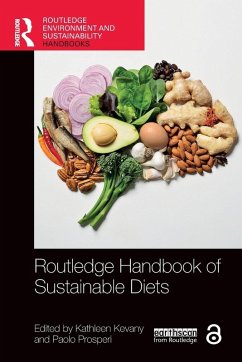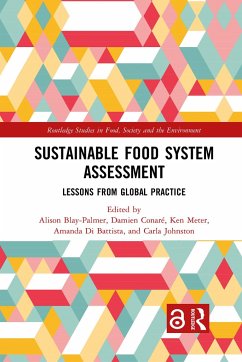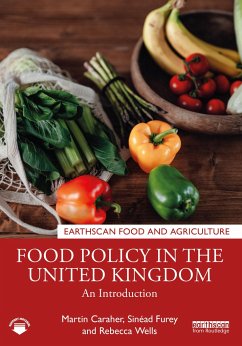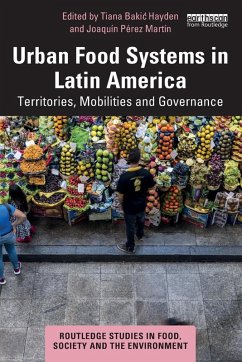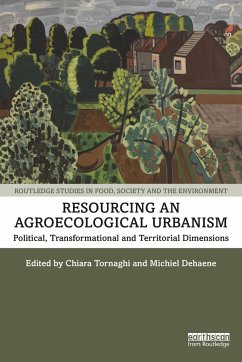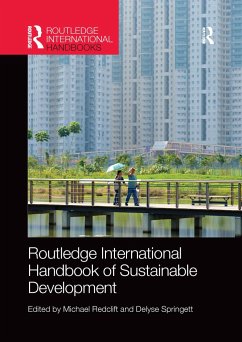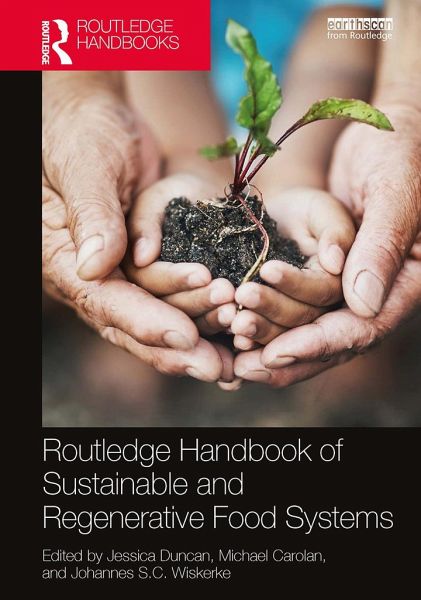
Routledge Handbook of Sustainable and Regenerative Food Systems
Versandkostenfrei!
Versandfertig in 6-10 Tagen
51,99 €
inkl. MwSt.
Weitere Ausgaben:

PAYBACK Punkte
26 °P sammeln!
This handbook includes contributions from established and emerging scholars from around the world and draws on multiple approaches and subjects to explore the socio-economic, cultural, ecological, institutional, legal, and policy aspects of regenerative food practices.The future of food is uncertain. We are facing an overwhelming number of interconnected and complex challenges related to the ways we grow, distribute, access, eat, and dispose of food. Yet, there are stories of hope and opportunities for radical change towards food systems that enhance the ability of living things to co-evolve. ...
This handbook includes contributions from established and emerging scholars from around the world and draws on multiple approaches and subjects to explore the socio-economic, cultural, ecological, institutional, legal, and policy aspects of regenerative food practices.
The future of food is uncertain. We are facing an overwhelming number of interconnected and complex challenges related to the ways we grow, distribute, access, eat, and dispose of food. Yet, there are stories of hope and opportunities for radical change towards food systems that enhance the ability of living things to co-evolve. Given this, activities and imaginaries looking to improve, rather than just sustain, communities and ecosystems are needed, as are fresh perspectives and new terminology. The Routledge Handbook of Sustainable and Regenerative Food Systems addresses this need. The chapters cover diverse practices, geographies, scales, and entry-points. They focus not only on the core requirements to deliver sustainable agriculture and food supply, but go beyond this to think about how these can also actively participate with social-ecological systems. The book is presented in an accessible way, with reflection questions meant to spark discussion and debate on how to transition to safe, just, and healthy food systems. Taken together, the chapters in this handbook highlight the consequences of current food practices and showcase the multiple ways that people are doing food differently.
The Routledge Handbook of Sustainable and Regenerative Food Systems is essential reading for students and scholars interested in food systems, governance and practices, agroecology, rural sociology, and socio-environmental studies.
The future of food is uncertain. We are facing an overwhelming number of interconnected and complex challenges related to the ways we grow, distribute, access, eat, and dispose of food. Yet, there are stories of hope and opportunities for radical change towards food systems that enhance the ability of living things to co-evolve. Given this, activities and imaginaries looking to improve, rather than just sustain, communities and ecosystems are needed, as are fresh perspectives and new terminology. The Routledge Handbook of Sustainable and Regenerative Food Systems addresses this need. The chapters cover diverse practices, geographies, scales, and entry-points. They focus not only on the core requirements to deliver sustainable agriculture and food supply, but go beyond this to think about how these can also actively participate with social-ecological systems. The book is presented in an accessible way, with reflection questions meant to spark discussion and debate on how to transition to safe, just, and healthy food systems. Taken together, the chapters in this handbook highlight the consequences of current food practices and showcase the multiple ways that people are doing food differently.
The Routledge Handbook of Sustainable and Regenerative Food Systems is essential reading for students and scholars interested in food systems, governance and practices, agroecology, rural sociology, and socio-environmental studies.





